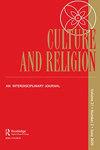From religious emotions to affects: historical and theoretical reflections on injury to feeling, self and religion
IF 0.5
0 RELIGION
引用次数: 10
Abstract
ABSTRACT Images of angry Muslims have become a common sight in repeated controversies problematising the compatibility of Islam and freedom of speech. To explain such outrage, it is often put forward that Muslims reacted to the disrespect and violation of their ‘religious feelings’. In this paper, we challenge the trope of hurt religious feelings in the explanation of unrest. Referring to the writings of Schleiermacher, James and Taylor, the discussion traces how religion and feeling have become inextricably intertwined, located within the individual self and institutionalised as a dominant interpretation of religion. We introduce affect as a conceptual alternative to such understandings, which allows us to analyse the emphasis on Muslim emotionality as a relationship between Muslim and secular bodies, hence no longer reduced to the interiority of Muslim subjects. We will illustrate the potential of an affect-based approach discussing Muslim feelings’ vital role in the construction of European democracies.从宗教情感到情感:对情感、自我与宗教伤害的历史与理论反思
在伊斯兰教与言论自由是否相容的争议中,愤怒的穆斯林形象已经成为一个常见的景象。为了解释这种愤怒,人们经常提出,穆斯林对不尊重和侵犯他们的“宗教感情”做出了反应。在本文中,我们挑战了在解释动乱时伤害宗教感情的比喻。参考施莱尔马赫、詹姆斯和泰勒的著作,讨论追溯了宗教和情感是如何不可分割地交织在一起的,它们位于个人自我之中,并作为对宗教的主要解释而制度化。我们将情感作为这种理解的概念替代,这使我们能够分析穆斯林情感作为穆斯林与世俗身体之间关系的强调,因此不再被简化为穆斯林主体的内在性。我们将说明以情感为基础的方法讨论穆斯林情感在欧洲民主建设中的重要作用的潜力。
本文章由计算机程序翻译,如有差异,请以英文原文为准。
求助全文
约1分钟内获得全文
求助全文

 求助内容:
求助内容: 应助结果提醒方式:
应助结果提醒方式:


